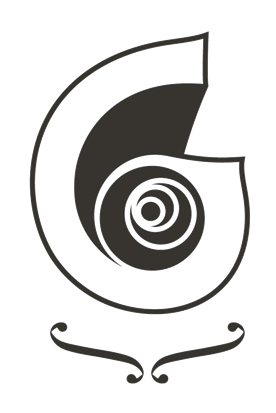
Amazing Collections of Music Soul Posts
Share
Music and Its Effect on Body, Brain/Mind, and Spirit
A brief look at history
• Some archaeologists believe that music and dancing preceded language.
• Since the days of the Greeks and Romans, music has had a profound effect on the body and the mind.
• Healing and sound were considered sacred science.
• Healing and music diverged in the 18th century, music was for entertainment, healing was practiced through science and medicine.
• Since World War II, the health benefits of music have become more recognized in mainstream medicine.
• Today, no human culture is known that does not have music.

Music affects the body and the brain
Music for Mind and Body (article) http://valleymusictherapy.com/research.html
Tuning the Brain for Music (article) http://www.braintuning.fi/research.html
Music and the Human Brain (article) http://www.silcom.com/~aludwig/Brain.htm
Music for Pain (Article and Video) http://www.sciencentral.com/articles/view.php3?article_id=218392834
The Healing Power of Music (article) http://www.myoptumhealth.com/portal/Information/item/
Music+Therapy%3A+Benefits+and+Uses?archiveChannel=Home%2FArticle&clicked=true
Can Music Therapy Affect your Health? (article)
http://www.scientificblogging.com/erin039s_spin/can_music_therapy_affect_your_health
“Music medicine” has only begun to receive serious scientific consideration, with rigorous medical research beginning to build up in the late 1980s.
“Music Neuroscience, Physiology and Medicine.” Fall 1997. Musica(IV)2. (article) http://www.musica.uci.edu/mrn/V4I2F97.html#neuroscience
Music as Medicine (article) http://seattletimes.nwsource.com/html/health/2002286998_healthmusic25.html
Music Medicine
Physical effects of music
• Changes in blood flow
• Speed of muscle reaction
• Lower blood pressure
• Lower heart rate
• Changes in cell structure
• Stimulation of chemicals in the brain
Music and its Effect on the Brain (links and websites) http://www.google.com/search?hl=en&q=music+and+its+eff
ects+on+the+brain&start=10&sa=N
Music and its Impact on the Human Brain (article)
http://stanford.wellsphere.com/general-medicinearticle/doctor-blog-music-and-it-s-impact-on-the-humanbrain/18975
Music and the brain
Psychological effects of music
• Calms the body and the mind
• Facilitates visualization
• Diverts attention away from unpleasant situations.
• Entrainment enables individuals to experience commonality with feelings conveyed in music.
Music’s effect on the brain
• The cerebellum is connected to the ears. Music produces emotional responses and positively impacts movement.
• Watching musicians perform affects brain chemistry differently than listening to a recording.
• Music triggers reward centers in the brain, the same neural clusters that process pleasure also fire up for music.
• Brain neurons are hard-wired for music.
• Processing music is complex and not limited to the right hemisphere only.
• There is a strong connection between memory centers of the brain and those that process music
• Music is transported via the auditory nerve to the auditory cortex.
• The right side of the cortex perceives pitch, melody, harmony, and timbre.
• The left side of the cortex processes changes in frequency and intensity.
• Both sides are needed for rhythm, as in differentiating time signatures.
• The hippocampus differentiates between styles of music.
• Frontal cortex perceives other aspects of melody and rhythm; patterns of neural activity are seen that are affected by music.
• Research has shown that activity in regions of the brain, in addition to the cerebral cortex, are heightened while listening to music.
• The limbic system of the brain evokes a feeling from a certain piece of music .
• The rhythm of a song makes people want to tap out a rhythm, or dance, which is controlled by the brain’s motor functions.
• The experience of a live music performance is perceived and responded to by the brain even more strongly than recorded music.
Music’s effect on the brain
Psychoacoustics is:
• The study of how humans perceive sound.
How we listen
Psychological responses to music
Physiological impacts on human nervous system
• In the spectrum of sound, there is a chain of vibration.
All atomic matter vibrates.
Frequency is the speed at which matter vibrates.
The frequency of vibration creates sound (sometimes inaudible to
human ears).
Sounds can be molded into music.
Psychoacoustics
http://www.sound-remedies.com/psyc.html
Spiritual effects of music
• Music creates a point of focus for the mind.
• Music aligns energy fields, when coupled with intention,
vibration and resonance flow.
• Music allows access to inner resources:
• Renewed vitality
• Balance
• Clarity
• Inspiration
• Relaxation
• Creativity
• Transformation
In conclusion
• The brain is the CPU for all human thoughts and actions;
only now are we beginning to understand how it
orchestrates the symphony of music and its effects.
• The brain synthesizes music unlike any other “input” and
uses all of its parts to create pleasure or pain from the
sounds and frequencies we hear.
• From cancer to Alzheimer’s, to mentally handicapped, to
spiritually broken, as well as many other conditions, music
flows into the brain and aids in the healing of body, mind
and soul.
References
•
“The Importance of Music and Brain Research.”
http://www.centerformusicmedicine.org/pdfs-music-andbrain/THE_IMPORTANCE_OF_MUSIC_AND_BRAIN_RES
EARCH.pdf
• “The Role of Music and Sound in Healing from Cancer:
Developing Your Own Sound Healing Practice.”
www.healingmusic.org
• Sancar, Feyza “Music and the Brain: Processing and
Responding.”
http://www.centerformusicmedicine.org/pdfs-music-andbrain/Music_and_Brain-Sancar.pdf
This article is from: http://www.musicforhealthservices.com/Music_as_therapy/Pages/Module%2007_Creative_Applications_of_Music_and%20_Sound/7.2_Music_and_its_effect_on_Body_Brain_and_spirit.pdf
